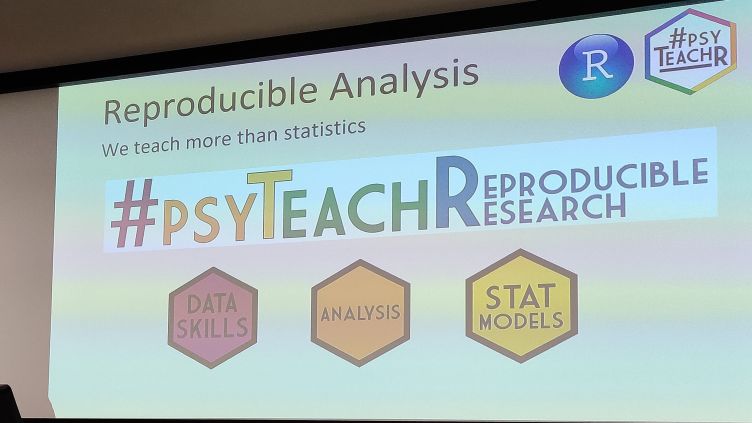Teaching Reproducible Research and Open Science Conference at Sheffield University
Last month (June 20-22), the trainer for Research Data Management and Digital skills from the Research Data and Software Team from TU Delft Library (RDS), Carlos Utrilla Guerrero was invited as guest speaker at Sheffield University in a three day ‘Teaching Reproducible Research and Open Science Conference’, to share our experience implementing the vision for Research Data and Software management training at TUDelft and teaching the RDM101 course, to help researchers develop the necessary skills to work as efficiently, reproducibly, and openly as possible.

The three-day event (20 June) kicked off with a symposium ‘Perspectives on teaching reproducibility’ organised by Sheffield Methods Institute (SMI) in collaboration with the University Library and Open Research Working Group (ORWG), and led by Aneta Piekut (SMI) and Jenni Adams (Library). The activities focused on incorporating reproducible methods in teaching reproducible research. It was attended by approximately 40 participants.

In Carlos’s talk (https://zenodo.org/record/8158825), he spoke about Delft’s commitment to doing science responsibly in a way that maximises the positive benefits to society. This symposium provided an excellent opportunity for us to illustrate with examples how we motivate, and provide practice opportunities to researchers to engage them in learning about the benefits of reproducibility.
The Symposium stimulated interdisciplinary exchange of best practice in doing and teaching open research. The participants discussed different approaches on embedding open science principles in taught programmes in such disciplines, like computer science (Neil Shephard, University of Sheffield), engineering (Alice Pyne, Univ. of Sheffield and Carlos Utrilla Guerrero, TU Delft Library), social sciences (Jenniffer Buckley, Univ. of Manchester and Julia Kasmire, UK Data Service, Jim Uttley, Univ. of Sheffield), geo-data-science (Jon Reades and Andy MacLachlan, UCL), psychology (Marina Bazhydai, Lancaster Univ. and Lisa DeBruine, Univ. of Glasgow). Project TIER’s Directors also gave the first keynote speech arguing in favour of saturating quantitative methods instruction with reproducibility. In the second keynote of the day, Helena Paterson from School of Psychology & Neuroscience at the University of Glasgow reflected on the School journey of redesigning the psychology undergraduate and postgraduate curriculum to focus on teaching reproducible methods and analysis.
On day two, (21 June) Norm and Richard delivered a UKRN accredited workshop (Repository: https://osf.io/3jwyz/) on integrating principles of transparency and reproducibility into quantitative methods courses and research training. During the final day (22 June) Project TIER’s Directors were available for individual and small-group meetings with instructors interested in introducing reproducible methods into their classes.
The conference and workshop was a great opportunity to get to know practices and use cases of embedding open science and reproducible research in teaching activities in different fields. A useful piece of advice from several attendees about effective methods for teaching reproducibility is that today’s students (MSc and BSc) are potentially tomorrow’s researchers, and so integrating reproducibility into the undergraduate curriculum will be crucial in promoting and implementing reproducible practices in the long term. This is in line with the work of the TU Delft Library’s Data Literacy Project, an initiative of the Open Science Programme that launched in March 2023. The Data Literacy Project is investigating how to integrate skills on data literacy and open science practices into the BsC and MsC programmes at TU Delft. Please contact project leader Paige Folsom for more information about the project: P.M.Folsom@tudelft.nl.
Resources:
Event Program: https://www.sheffield.ac.uk/smi/events/teaching-reproducible-research-and-open-science-conference
Presentations: https://drive.google.com/drive/u/0/folders/1uWLbbFscxVsxtdtpcbXz2KWeA417R0so
The programme Booklet: https://issuu.com/smi_events/docs/teaching_reproducibility
RDM 101 openly available as a self-learning resource: https://tu-delft-library.github.io/rdm101-book
